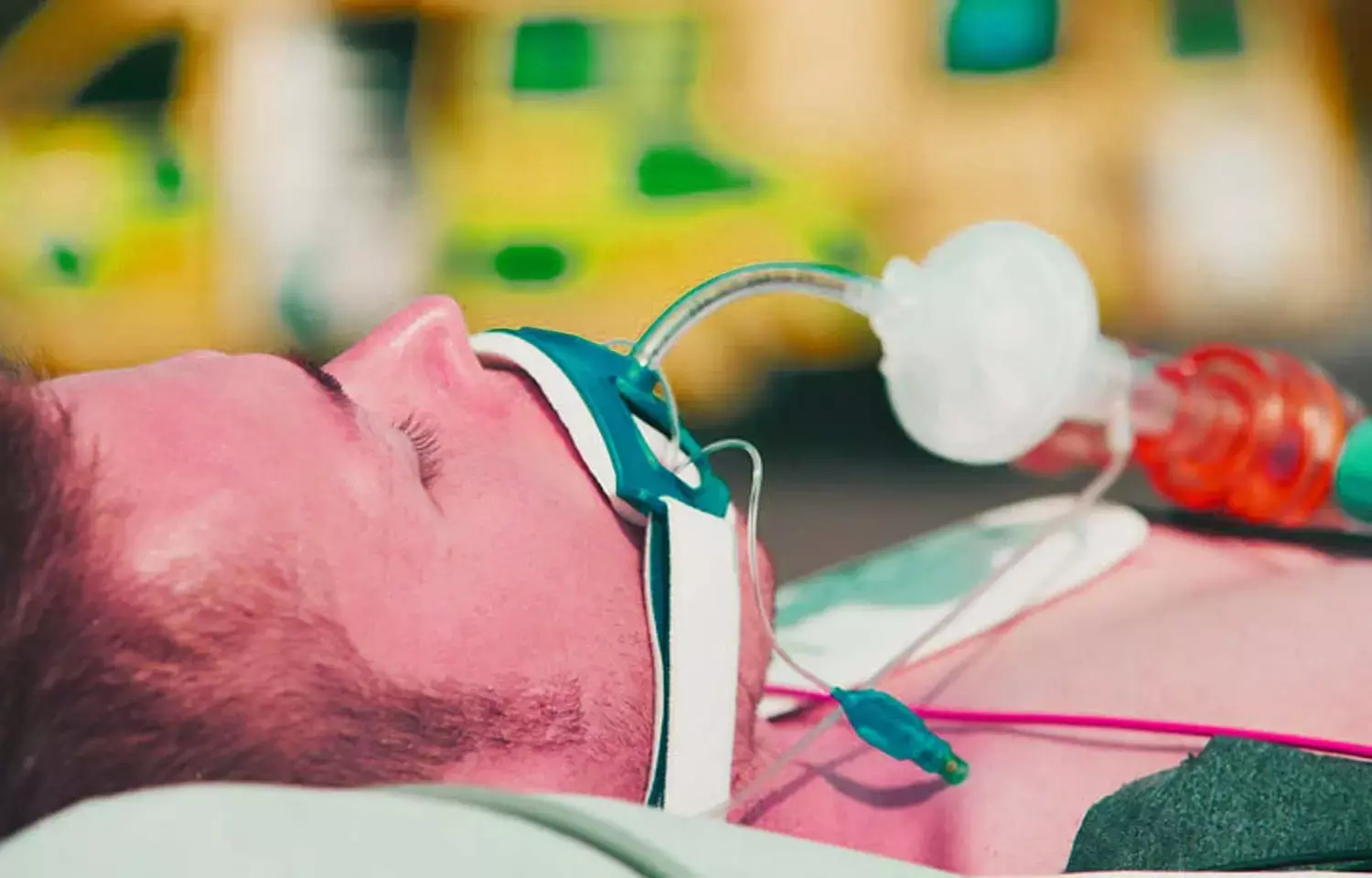- Home
- Medical news & Guidelines
- Anesthesiology
- Cardiology and CTVS
- Critical Care
- Dentistry
- Dermatology
- Diabetes and Endocrinology
- ENT
- Gastroenterology
- Medicine
- Nephrology
- Neurology
- Obstretics-Gynaecology
- Oncology
- Ophthalmology
- Orthopaedics
- Pediatrics-Neonatology
- Psychiatry
- Pulmonology
- Radiology
- Surgery
- Urology
- Laboratory Medicine
- Diet
- Nursing
- Paramedical
- Physiotherapy
- Health news
- Fact Check
- Bone Health Fact Check
- Brain Health Fact Check
- Cancer Related Fact Check
- Child Care Fact Check
- Dental and oral health fact check
- Diabetes and metabolic health fact check
- Diet and Nutrition Fact Check
- Eye and ENT Care Fact Check
- Fitness fact check
- Gut health fact check
- Heart health fact check
- Kidney health fact check
- Medical education fact check
- Men's health fact check
- Respiratory fact check
- Skin and hair care fact check
- Vaccine and Immunization fact check
- Women's health fact check
- AYUSH
- State News
- Andaman and Nicobar Islands
- Andhra Pradesh
- Arunachal Pradesh
- Assam
- Bihar
- Chandigarh
- Chattisgarh
- Dadra and Nagar Haveli
- Daman and Diu
- Delhi
- Goa
- Gujarat
- Haryana
- Himachal Pradesh
- Jammu & Kashmir
- Jharkhand
- Karnataka
- Kerala
- Ladakh
- Lakshadweep
- Madhya Pradesh
- Maharashtra
- Manipur
- Meghalaya
- Mizoram
- Nagaland
- Odisha
- Puducherry
- Punjab
- Rajasthan
- Sikkim
- Tamil Nadu
- Telangana
- Tripura
- Uttar Pradesh
- Uttrakhand
- West Bengal
- Medical Education
- Industry
Early intervention for laryngeal injury after intubation is beneficial: JAMA

Nashville, Tennessee: Early intervention for the treatment of laryngeal injury after intubation may minimize fibrotic scar formation, disrupt the natural course of this disease, and limit long-term physiological impairment, finds a recent study.
The findings of the study, published in the journal JAMA Otolaryngology-Head & Neck Surgery, are relevant for the management of critical illness related to severe acute respiratory syndrome coronavirus 2 (SARS-CoV-2) infection who extended durations of endotracheal intubation.
Patient who get laryngeal injury after endotracheal intubation often present long after initial injury with mature fibrosis compromising cricoarytenoid joint mobility and glottic function. Anne S. Lowery, Vanderbilt University School of Medicine, Nashville, Tennessee, and colleagues aimed to compare functional outcomes between early and late intervention for intubation-related laryngeal injury.
For the purpose, the researchers performed a retrospective cohort study involving 29 patients with laryngeal injury from endotracheal intubation. They were evaluated at a tertiary care center between May 1, 2014, and June 1, 2018. The researchers compared ten patients with intubation injury to the posterior glottis who received early treatment with 19 patients presenting with posterior glottic stenosis who received late treatment.
Early intervention was defined as a procedure performed 45 days or less after intubation, and late treatment, defined as an intervention performed greater than 45 days after intubation.
Patient-specific and intervention-specific covariates were compared between the 2 groups, absolute differences with 95% CIs were calculated, and time to tracheostomy decannulation was compared using log-rank testing.
Key findings of the study include:
- The 2 groups had similar demographic characteristics and a similar burden of comorbid disease.
- Nine of 10 patients (90%) who received early intervention and 11 of 19 patients (58%) who received late interventions were decannulated at last follow-up (absolute difference, 32%).
- Patients who received early treatment required fewer total interventions than patients with mature lesions (mean, 2.2 vs 11.5; absolute difference, 9.3).
- None of the patients who received early treatment required an open procedure, whereas 17 patients (90%) with mature lesions required open procedures to pursue decannulation.
"This study suggests that early intervention for patients with postintubation laryngeal injury was associated with a decreased duration of tracheostomy dependence, a higher rate of decannulation, and fewer surgical procedures compared with late intervention," wrote the authors. "Patients who underwent early intervention also avoided open reconstruction."
"indings may bear relevance to the management of patients requiring extended durations of endotracheal intubation during recovery for critical illness related to severe acute respiratory syndrome coronavirus 2 (SARS-CoV-2) infection," they concluded.
Reference:
The study titled, "Early Intervention for the Treatment of Acute Laryngeal Injury After Intubation," is published in the journal JAMA Otolaryngology-Head & Neck Surgery.
DOI: https://jamanetwork.com/journals/jamaotolaryngology/article-abstract/2775609
Dr Kamal Kant Kohli-MBBS, DTCD- a chest specialist with more than 30 years of practice and a flair for writing clinical articles, Dr Kamal Kant Kohli joined Medical Dialogues as a Chief Editor of Medical News. Besides writing articles, as an editor, he proofreads and verifies all the medical content published on Medical Dialogues including those coming from journals, studies,medical conferences,guidelines etc. Email: drkohli@medicaldialogues.in. Contact no. 011-43720751


